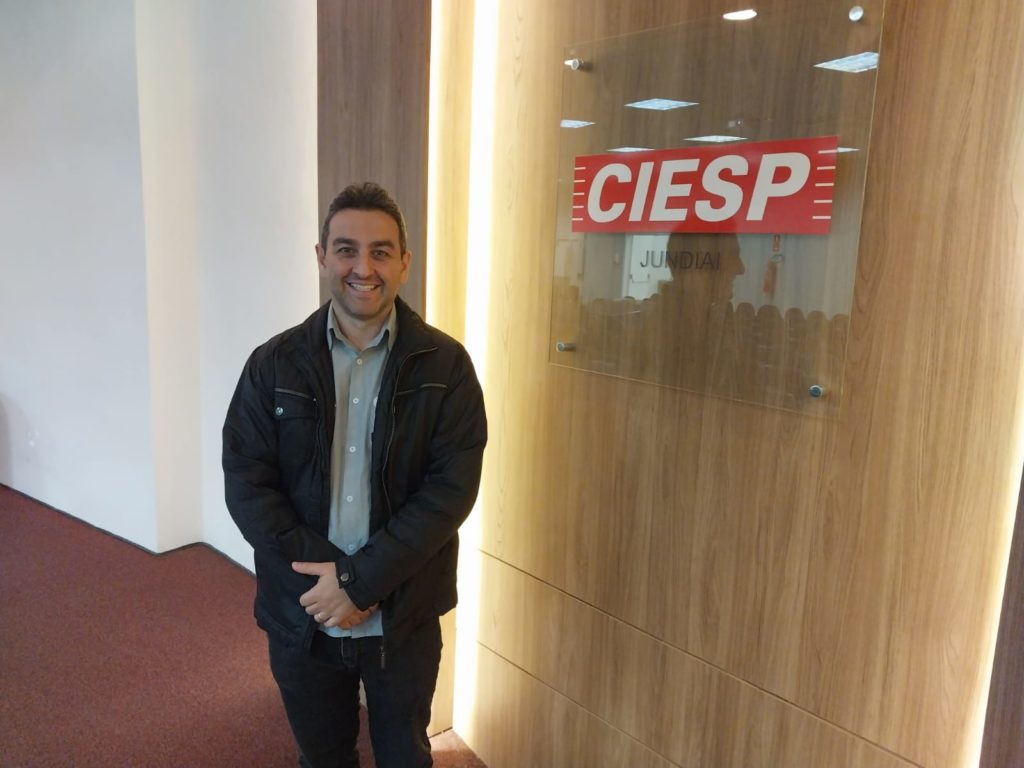São Paulo – Companies based in the municipality of Jundiaí, São Paulo, are interested in getting to know more about the requirements and opportunities of the halal market. Local businesspeople and executives participated this Tuesday (13) morning in the presentation of the Halal Brazil project in the headquarters of the Center of Industries of the State of São Paulo (CIESP) in Jundiaí to learn how to supply such goods.
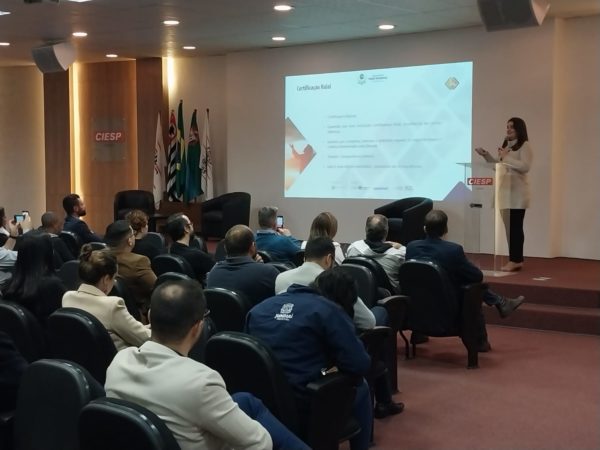
Figures from Brazil’s Ministry of Development, Industry, Trade and Services showed that last year Jundiaí exported USD 709 million worth of goods such as machines and equipment, plastics and rubber, foods, optical apparatus and instruments, and others, and their leading destinations were the United States, Argentina, Chile, Uruguay, Mexico, Paraguay, Peru, Colombia, China, and Bolivia. Exports grew by 18% from 2021.
Muslim countries are not among the leading importers of goods from Jundiaí, but the leaders of the Halal Brazil project showcase this opportunity to entrepreneurs in the city. The project is carried out by the Arab Brazilian Chamber of Commerce (ABCC) and the Brazilian Trade and Investment Promotion Agency (ApexBrasil) with the purpose of taking 500 Brazilian companies, particularly of value-added foods, to the halal market. Halal goods are those fit for Muslim consumption.
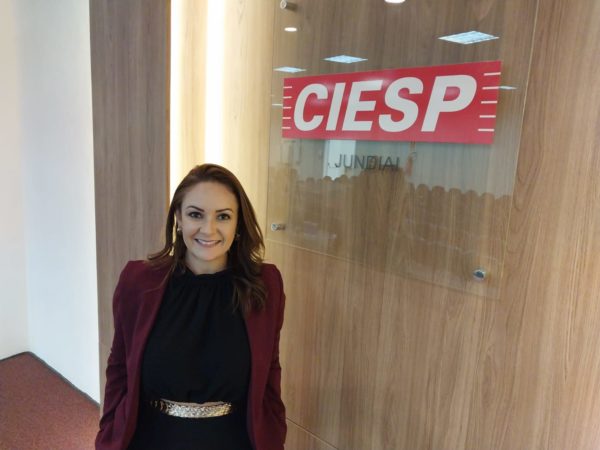
Executives attending the lectures at CIESP-Jundiaí included Quinta Semente cofounder Renato Masini (opening picture). The company imports and sells dried fruit in Brazil, including dates from Tunisia and the United Arab Emirates, and distributes Brazilian nuts and peanuts in the domestic market. Quinta Semente buys products in bulk and divides them into smaller packages. “I have to further explore this market and understand what they consume, what their needs are,” Masini told ANBA.
Castelo Foreign Trade coordinator Milene Vieira da Silva participated in the event, too. Castelo is widely know in Brazil for its vinegar but manufactures over 80 types of products that range from dressings to pickled vegetables, condiments, and seasonings. The company is an exporter and resumed its sales to Muslim countries last year by supplying biquinho peppers, heart of palm, and pepper pâté to Dubai. After listening to the Halal Brazil project’s presentation, the executive said she intends to verify what product lines could obtain a halal certification and are in demand in Muslim countries.
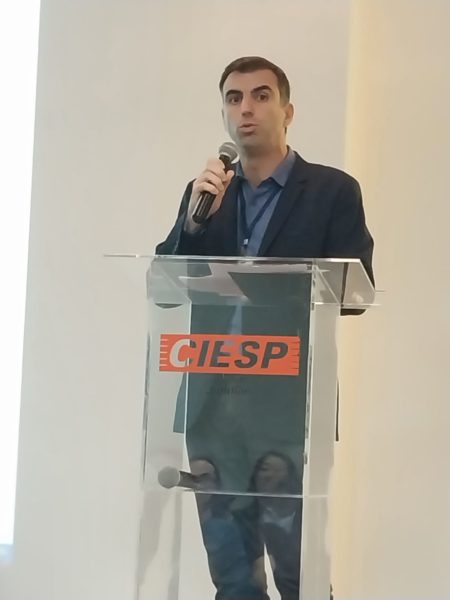
De Marchi is one of the Jundiaí-based companies that is halal certified. Manuel Hing, who represented the company at CIESP, was in the event to learn more on the current opportunities in the halal market. De Marchi produces fruit, vegetables, and frozen fruit pulp, as well as açaí, and exports to 15 countries. The company is halal certified and is in talks to sell to Muslim countries, Hing said. He said the demand for the certification came in talks with buyers from the region.
The officials in Jundiaí attending the event at CIESP encouraged businesspeople to look to export. Speaking on behalf of Jundiaí’s mayor, the municipality’s Economic Development, Science and Technology manager Cristiano Lopes opened the event by saying it was aimed at supporting the export process of the companies, pointing out that Jundiaí is a reference in imports for its logistics facilities.
CIESP-Jundiaí director Manoel Flores also participated and advised local companies to turn 10-15% of the output to exports in order to balance business. He gave his view on the UAE, where he’s been recently , and he stressed the work the Arab Muslim country has done for attracting tourism, which is expected to further consumption. The market is highly reliant on imports.
What is the Halal Brazil project?
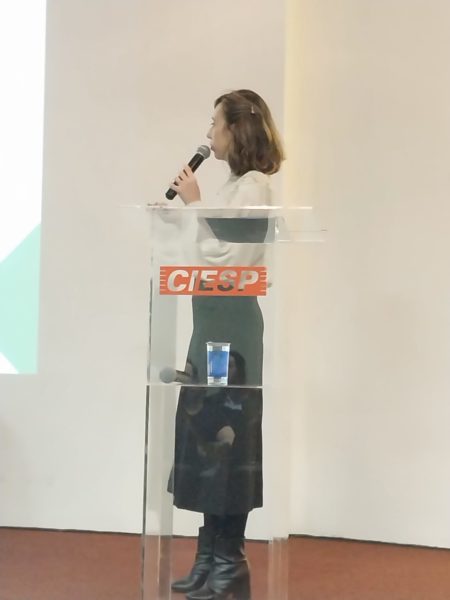
In the meeting at CIESP, participants could learn what is a halal product and what are the main requirements for getting this certification, the size and consumer trends in Muslim countries, details of the Halal Brazil project such as how to participate and activities to be developed, and success stories of companies that are already certified and export halal.
ABCC Internationalization Projects manager Fernanda Dantas explained the Halal Brazil project is made of three phases: awareness raising, when uncertified companies get information on halal, online targeted training for companies interested in getting the halal certification, and commercial promotion by participating in international trade shows and missions. Companies can apply to receive a support of up to 50% of the costs to obtain the halal certification.
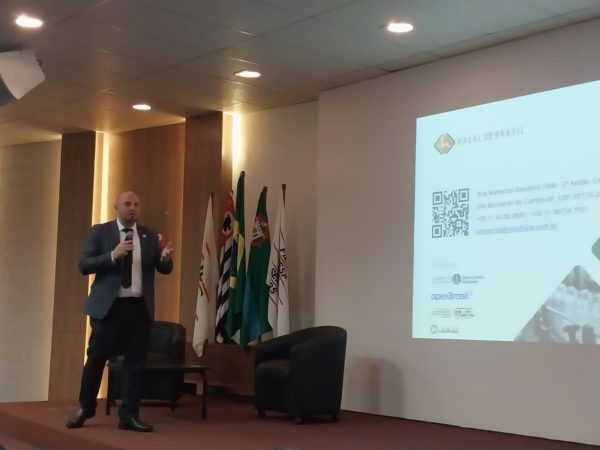
The 30-month project runs until 2025 and will invest BRL 15.4 million (USD 3.2 million). Priority markets are Arab countries Saudi Arabia, UAE, and Egypt, and non-Arab South Africa, Indonesia, Malaysia, France, and Germany, the latter two because they hold the world’s largest food shows. Dantas presented in Jundiaí commercial promotion actions to be held later this year, including shows in Malaysia and Germany, and a trade mission to South Africa.
Besides Dantas, the event featured Elaine Cardoso of Academia Halal and certifier Fambras Halal, who presented what are halal goods and their certification; Sotirios Ghinis, an economist at the ABCC, who tackled the markets; and Walid El Orra of certifier Cdial Halal, who told success stories of companies in the halal market. Jundiaí’s International Cooperation advisor Lígia Contursi moderated the event held by the City Hall of Jundiaí via its Exporta+ Jundiaí program, with support from the Halal Brazil project.
More information:
Halal Brazil
Translated by Guilherme Miranda



